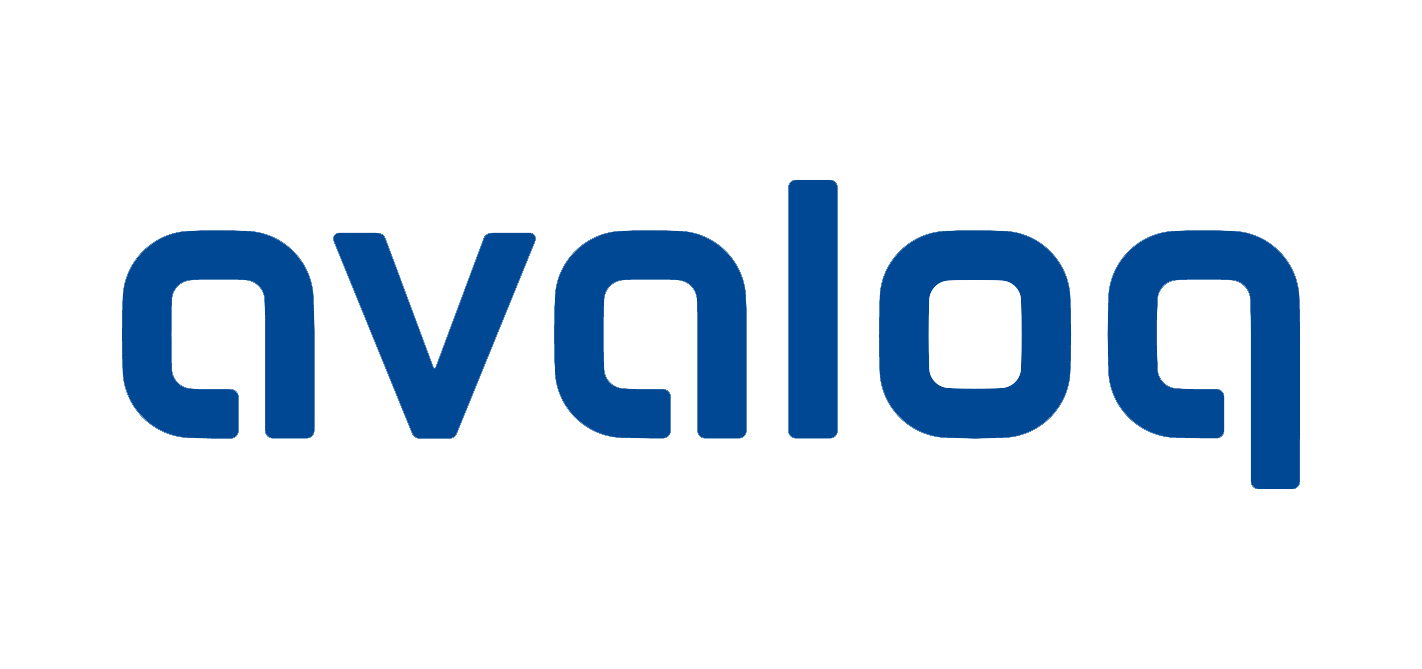Published
- 04:00 am

Small and medium-sized businesses can access working capital loans up to £3 million, make secure international payments and expand into new geographies within days
Global fintech and international payment service provider, WorldFirst, has joined forces with RITMO to launch a £100 million growth package for fast-growing small and medium-sized e-commerce businesses in the UK.
WorldFirst’s Growth Package uses its cross-border payment infrastructure, which allows customers to open free business accounts abroad to pay their beneficiaries in their local currencies and collect payments from marketplaces and payment gateways. This is combined with access to working capital loans through RITMO, an online growth platform specialised in financial solutions to small businesses that sell online.
Small and medium-sized e-commerce businesses can apply for non-dilutive loans up to £3 million through WorldFirst’s designated partner at a discounted rate. They receive an offer in 24 hours and the funds are deposited into their account in just five business days. Customers pay a small percentage of their sales income each month. If sales fluctuate or fall, the financing period is extended at no additional cost.
This rapid access and flexible repayment model allow e-commerce companies to scale up during peak or seasonal periods of demand, extend payment terms and improve their cash flow management or open new sales channels for growth and expansion.
The package is available to small and medium-sized e-commerce companies selling via online marketplaces such as Amazon and eBay, multi-platform sellers, aggregators and direct-to-customer native brands selling via their website and other digital channels.
Jeff Parker, CEO at WorldFirst, said: “The UK has the most advanced e-commerce market in Europe, but the growth prospects of these businesses are hampered by complex international banking and payment arrangements and difficulty when sourcing the working capital they need to fund their expansion.
“The launch of our Growth Package addresses a crucial market need and supports our customers’ global growth ambitions by enabling quick and efficient access to working capital. By working with partners that complement our existing offering, we are delivering our mission to provide a one-stop solution for digital payments and financial services to small and medium-sized business trading internationally.”
Raimundo Burguera, Co-Founder and CEO at RITMO, said: “We are very excited to partner with WorldFirst and contribute towards the launch of this Growth Package. This will enable online and e-commerce sellers in the UK to improve their operations and scale their businesses through the combined value proposition of fair and easy access to working capital, international payments and FX.”
Related News
- 05:00 am

Following publication of the Bank of England and FCA’s Artificial Intelligence Public-Private Forum (AIPPF) final report on AI in financial services, Gery Zollinger, Head of Data Science & Analytics at Avaloq, assesses the best ways to support ethical use of AI by financial firms.
Artificial intelligence can efficiently handle key business processes through a combination of machine learning and big, real-world data. But this data may contain human bias and prejudices – explicit or implicit – that can be learned and reinforced by the AI system. What can financial firms do to mitigate the risks and reap the rewards?
The evolution of AI in financial services
The traditional use case of AI systems in finance is to automate and standardize routine tasks, allowing businesses, such as wealth managers, to focus more on enhancing their value proposition and strengthening relationships with their clients. But today, AI is capable of doing much more.
Financial institutions can now leverage AI to instantly create personalized portfolio recommendations based on investors’ risk appetite, goals and preferences. Another innovative area is conversational banking, where AI systems use natural language processing (NLP) to interact with clients much faster and understand their intent.
This goes beyond just improving efficiency – it enhances the client experience and boosts engagement. This expanded role further highlights the necessity of an ethical framework to govern how financial firms deploy AI.
The future of AI regulation
The use of AI is becoming increasingly widespread in financial services, but regulations have considerably lagged innovation, so it can be difficult for financial institutions to find guidance on AI best practices.
To maximize the value of AI, financial firms need to understand how the technology behind it fits in with the regulatory landscape. The European Commission (EC) is one of the first regulatory bodies in the world to produce a draft proposal on the use of AI. It classifies AI activity by risk, from unacceptably high risk to minimal risk, with credit lending, for example, classified as high risk due to the potential for prejudice. The EC’s proposal will likely influence similar regulations in jurisdictions around the world.
The Bank of England and FCA, through the Artificial Intelligence Public-Private Forum (AIPPF), has announced it will publish a Discussion Paper on AI later this year to ascertain how the current regulatory framework applies to AI and collect industry views on how policy can best support safe AI adoption. This paper will be key to the development of AI regulation in the UK.
What should financial firms do now?
AI needs to be coupled with a robust monitoring framework to constantly improve performance as well as to identify and rectify any potential shortcomings, including unethical outcomes. And in line with EC recommendations, AI systems should primarily be used in low-risk areas – such as investment recommendations, client churn predictions and chatbots – to minimize the severity of any unfair bias.
Where higher risk AI systems are needed, firms need to be particularly careful and implement even more stringent monitoring measures. By combining these factors, financial institutions can use the efficiency of AI to gain a competitive edge while ensuring fair outcomes for their clients.
Related News
- 06:00 am

NI tax hike acts as another blow to savers in cost-of-living squeeze
Savers and Employers alike should be making use of Salary Sacrifice to manage rising costs
Savers can use their pension to counter the impact of the rise to National Insurance (NI), says Penfold, the digital pensions provider.
An employee who earns £30,000 a year and contributes £100 a month into their workplace pension via Salary Sacrifice would save £158 over a year in national insurance taxes, which would reduce from £225.58 to £212.39 each month (full table below).
The government has confirmed that savers will see up to a 10.4% rise in their National Insurance bill. For most people, this will mean contributions rise from 12% to 13.25% - a 1.25 percentage point hike in contributions, equivalent to a 10.4% increase. Under the new rules, employed savers could pay up to £4,189 a month, and 3.25% of their earnings above that. Therefore, someone earning £30,000 would owe £2,707 over the year - £255 more than before this increase.
Salary sacrifice allows savers to pay a small part of their earnings as a pension contribution before tax is deducted. This means the salary the government uses to calculate how much tax you pay is smaller, and so you pay less tax.
Impact for employers
On top of rising costs elsewhere, this increase to NI represents a significant cost to businesses. Research shows that in 2020, employer National Insurance contributions accounted for 25.7% of all taxes borne by the UK’s biggest firms. From April, employers will experience a 1.5 percentage points increase. This means the employer will have to collect 15.3% on most employees' earnings and benefits above £737.01 a month.
Penfold says choosing a Salary Sacrifice workplace pension means that employers can reduce their NI costs as the tax isn’t payable on pensions contributions when paid this way.
As well as these savings, it’s important for employers to remember that they can also offset pension contributions against corporation tax – further minimising their tax bills.
Pete Hykin, Co-founder of Penfold, comments:
“Savers are already being hit with high inflation and rising energy bills and this NI tax hike acts as another blow in the cost-of-living squeeze, with those on lower wages likely to be severely impacted. Unfortunately, communication from the government about the real impact of the tax hike on incomes has been less than straightforward.
“However, what many might not be aware of is that pensions can actually be used by both employers and employees to trim tax bills. Salary sacrifice offers savers National Insurance relief on top of the usual pension tax relief, adding an extra boost to pots.
“By switching to a salary sacrifice pension scheme, businesses can save their employees hundreds of pounds a year - at no extra cost. For businesses who care about their employees and want to attract and retain the best talent, offering a pension which gives them the ability to keep their tax bills under control will be a big selling point for employees.
“Salary Sacrifice, and the ability for pensions to minimise tax bills in general, is something that isn’t spoken about enough and yet another example of where the industry is falling short on educating and engaging people with pensions. More needs to be done to educate employees and employers on these benefits and encourage employers to choose a Salary Sacrifice workplace pension scheme like the one from Penfold, to give employees as much flexibility as possible to deal with rising living costs.”
Related News
- 03:00 am

Leading mortgage technology provider Twenty7Tec today announces that it has appointed Tony Prestedge to its Board as a Non-Executive Director.
Prior to his most recent role as Deputy CEO at Santander, Mr Prestedge spent 12 years at Nationwide, occupying a variety of roles including Chief Operating Officer and Deputy CEO, and has also held the role of Managing Director of Home Finance at Barclays.
In 2021, he was seconded to the Department of Health and Social Care as the inaugural Chief Operating Officer of the NHS Test and Trace service, leading transformation planning and program management, technology, digital channel development, data analytics, and operations during the COVID-19 pandemic.
In his role as Non-Exec Director, Prestedge will support the Board of Twenty7Tec in group strategy, operations, and oversight.
James Tucker, CEO of Twenty7Tec Group, commented "Tony's appointment is indicative of the strong progress we have made in establishing ourselves as a key strategic partner to many of the leading lender and distribution businesses in the mortgage market. As we enter the next stage of our growth, Tony will be invaluable in helping us to continue to scale our business both organically and through acquisition.”
Tony Prestedge says of his appointment: "My career has been characterised by working in high-growth, fast-changing environments and so I am looking forward to helping Twenty7Tec as it looks to build on its market-leading mortgagetech status. James and his team have clearly created a company that is well set to flourish further over coming years and I'm looking forward to being part of the next chapter."
Related News
- 07:00 am

Global technology provider Arrow Electronics has announced an EMEA distribution agreement with Network as a Service (NaaS) provider Megaport. The agreement makes Megaport’s private Software Defined Network platform available to companies in EMEA looking to modernise their networks and accelerate digital transformation.
Megaport offers agile networking capabilities that help reduce operating costs and increase speed to market compared to traditional networking solutions. The NaaS platform provides private, scalable, on-demand connectivity to the world’s leading cloud service providers.
“After security, cloud optimisation is a top priority for the CTO, and having the best cloud connections to optimise costs is top of mind for most organisations going through digital transformation,” explains Alexis Brabant, vice president of sales for Arrow’s enterprise computing solutions business in EMEA. “We’re pleased to be working with Megaport to help them expand and deepen their channel relationships.”
The teaming of Arrow and Megaport offers:
● Improved network performance with reduced jitter and latency.
● Reduced cloud egress costs to cloud on-ramps when compared to internet rates.
● Point-and-click network provisioning to support interconnection between branch locations, data centres, cloud providers, and IT services without any hardware requirements.
● Real-time provisioning of virtual network infrastructure and interconnections.
● Secure, private hybrid cloud and multicloud connections to more than 360 service providers, 700-plus enabled data centres, and 230-plus cloud interconnect points.
“Bringing Megaport’s leading NaaS platform into the Arrow Electronics portfolio will make it easier for Arrow’s customers to modernise their customer’s network connectivity and provide quick access to leading cloud service providers,” said Rodney Foreman, chief revenue officer at Megaport. “Arrow’s global scale and reach, combined with their expertise in IT solutions, make them an ideal choice to help us expand our footprint in EMEA.”
Related News
- 08:00 am

The European investment platform Robo.cash introduces new commercial loans, which will be provided by the company of Robocash Group in Sri Lanka. Now platform users will be able to invest in loans for a period of 3 years at 12.5% with monthly interest payments.
Robocash Group company Rapidlend (PVT) LTD in Sri Lanka started its work in 2021. It provides instant access to payday loans to employed individuals and selected professionals. At the end of February, the amount of issued loans in Sri Lanka reached 708,000 EUR.
The company will be adding loans to Robo.cash as part of a partnership with RC Riga, a special purpose vehicle that provides funding to Robocash Group companies. Funds received from platform investors will be used to develop business in Sri Lanka.
Loans from Sri Lanka will be placed in euros and issued for a period of 3 years. The standard interest rate on them will be 12.5% per annum. The new loans, like all other products, will be covered by a 100% buyback guarantee.
Related News
- 03:00 am

- Planet is combining with Proximis, Datatrans, protel Hotelsoftware and Hoist Group, to create a unique vertical technology provider for commerce enablement.
- Operating in more than 120 markets, the combined company will organise by key customer verticals.
- Majority owners Advent International (‘Advent’) and Eurazeo invest to power new growth strategy.
- Former PayPal executive Brent Warrington appointed as Planet’s Chief Executive Officer (‘CEO’) to lead the newly combined company.
Planet, a global technology leader, today announced that it has combined with Proximis, Datatrans, protel Hotelsoftware and Hoist Group to power digital commerce, with industry leading cloud software and payments solutions for the Retail, Hospitality, and Financial Services verticals. The combined company operates in over 120 markets and employs more than 2,000 people worldwide.
Planet’s strategy to combine software, payments and technology is driven by its customers’ need to deliver consistent, convenient and personalised experiences, which meet the changing demands of their own consumers. Planet’s new offering enables its customers to connect all of their channels, both online and offline, aligning previously fragmented software and payment systems which prioritised function over end customer experience.
The creation of a single end-to-end platform allows retailers to support unified shopper journeys across all channels, including complex processes, such as click and collect, shop and ship, and advanced return management. For hoteliers, Planet offers integrated and built-in payments that power digital guest journeys, saving them time and enabling them to generate revenue through integrated value-added services. In addition, Planet works with a network of Financial Services Partners around the world to provide global payment processing solutions.
Majority owners Advent and Eurazeo have partnered to combine these companies into a vertically focussed global technology leader with an ambition to transform digital commerce for their customers. The two partners will continue to drive investment and innovation, drawing on their combined global reach and deep technology sector expertise.
The company will be led by Brent Warrington, who joins Planet with a highly successful track record leading high growth technology companies, including most recently PayPal, where he was the Global Head of Marketplaces. Prior to that, Brent spent five years as CEO of Hyperwallet, which was acquired by PayPal in 2019. Brent’s other leadership roles have included CEO of SecureNet Payment Systems (acquired by WorldPay) and CEO of FundsXpress (acquired by FirstData). Brent succeeds Patrick Waldron, who is joining the Planet Board of Directors.
Commenting on the announcement, Brent Warrington said:
"We have an incredible opportunity ahead of us to create a company that delivers innovative solutions that will be transformative for both our customers and their consumers, shoppers and guests through connected commerce.
“We will be a differentiated and disruptive force within our sector, which will drive our growth ambitions, and I look forward to updating you on our progress over the course of 2022."
Related News
- 04:00 am

Central banks in two large markets tightened their grips on major payment providers.
Tencent’s WeChat Pay is facing a potential multimillion yuan fine over an alleged violation of anti-money laundering and know your customer (KYC) rules, a source familiar with the matter told the Wall Street Journal.
- In an inspection that ended in late 2021, regulators discovered that, in some cases, WeChat Pay failed to enforce KYC and know your business rules, which are customer and merchant identity verification checks meant to prevent financial crimes. WeChat Pay was reportedly also found to have allowed transactions related to gambling and other illicit activities.
- The Chinese government has been cracking down on major internet and financial providers, including Ant Group-operated mobile wallet Alipay. The probe into WeChat Pay—which this year is expected to account for nearly 39% of China’s mobile wallet users, per Boku and Juniper Research—could result in a record fine, sources told the Journal.
India-based Paytm Payments Bank was reportedly banned from taking on new customers because of an alleged breach of data-sharing regulations, a source familiar with the matter told Bloomberg.
- Sources say that an annual inspection by the Reserve Bank of India (RBI) found that the bank’s servers were sharing data with some entities located in China. For context, consumer privacy laws in India require all payments companies to store user data on local servers.
- Although these China-based entities were said to indirectly own a stake in Paytm Payments Bank, sources said the firm failed to maintain proper documentation meant to separate the firm and its assets from its owners. Additionally, Paytm Payments Bank reportedly onboarded thousands of users without proper KYC documentation.
- The RBI allegedly asked Paytm to bring in a technology auditor. The firm is said to be taking steps to comply with rules. As one of the largest payment providers in India—it says it has over 100 million customers—Paytm may want to avoid additional regulatory heat to maintain its standing in the market.
What this means: As competition intensifies and technology advances, fintechs are expanding their networks to become consumers’ one-stop-shop for financial services—the ongoing rise in super apps is one example of this.
Providing a wide array of digital financial services adds consumer appeal, especially in countries with high populations of unbanked people who can benefit from such offerings. This in turn helps bolster fintechs’ power and influence, which may draw greater regulatory attention.
Going forward, tighter oversight and new regulation may make it difficult for major providers like Tencent and Paytm to grow their presence. But it does give smaller fintechs a better chance at competing for market share.
Related News
- 01:00 am

“Being named to the Inc. 5000 year after year shows the deep commitment of our team to making customer success our top priority,” said Joe Welu, founder and CEO of Total Expert. “We take pride in our mission: helping banks, credit unions, and lenders deliver the perfect customer journey. Our human-first approach continues to drive tremendous value for our customers, helping them build lifetime customer relationships. It’s rewarding to see our strategy and innovation drumbeat paying off in the form of significant growth.”
“This year’s Inc. 5000 Regional winners represent one of the most exceptional and exciting lists of America’s off-the-charts growth companies. They’re disruptors and job creators, and all delivered an outsize impact on the economy. Remember their names and follow their lead. These are the companies you’ll be hearing about for years to come,” says Scott Omelianuk, editor-in-chief of Inc.
Related News
- 02:00 am

- Opportunity: By 2030, demand for skilled workers will outstrip supply, resulting in a global talent shortage of more than 85.2 million people
- Impact: $8.542 trillion in unrealized revenue by 2030 if left unchecked amongst Korn Ferry’s study of 20 nations. Multiplier is dedicated to rebalancing the demand and supply of global talent
Multiplier, a global employment platform, that helps companies employ and pay talent anywhere in the world compliantly, has today announced a $60m Series B funding round. This round was co-led by Tiger Global and Sequoia Capital India with participation from DST Global Partners. The new investment brings Multiplier’s total funding to $77.2m, taking their valuation to $400m.
This news comes in less than 3 months since Multiplier’s series A (led by Sequoia Capital India) and just 6 months after seed funding ( through Surge, the Sequoia Capital India start up programme) as the company scales globally. And testament to the growing popularity of the platform, Multiplier’s solution has been recognised and highly-rated in G2 and Capterra
Founded in 2020, at the peak of the pandemic, the company has been solving the problem of global employment by allowing companies to tap into global talent pools effortlessly. “The talent shortage is real and the restrictions due to the pandemic accelerated it. Businesses are finding it hard to hire people with in-demand skills and have opened themselves to the possibility of distributed teams. Meanwhile, candidates have gotten picky about their employers, the actual work, compensation, benefits, flexibility and much more. With this paradigm shift afoot, companies have recently realized that going global is the only way forward. Country borders shouldn’t hinder the search for the right people for the right roles. We are resetting the mantra that hiring people from abroad is a costly, time-consuming, and organizationally daunting effort.” said Sagar Khatri , CEO of Multiplier.
Multiplier eliminates the need for organizations to establish their own legal entities to access talent in any country. Businesses that use Multiplier can focus on employing anyone, anywhere in the world in minutes. The company works with customers from across the globe today, with its roots in the Asia Pacific region. Users can manage global payroll, provide benefits, insurance and tackle compliance with ease starting at $300 per employee per month and $40 per freelancer per month. In geographies where businesses have their own entities, Multiplier is helping companies manage payroll for their employees starting at $20 per employee per month.
A key focus for Multiplier is the provision of health insurance coverage, a central provision in most standard benefits packages. However, the market is flooded with intermediaries, agents and brokers, so the cost and the value offered becomes extremely important. Multiplier is the only company in the space to provide locally competitive, customizable and homogenous insurance to its customers starting at as less as $20 per employee per month which comes with a detailed factsheet to compare plans.
“With this new capital, Multiplier will be able to further accelerate its work towards expanding the global infrastructure, garnering meaningful partnerships and adding new capabilities to our platform. Additionally, we are also on a hiring spree, looking for an all-star team across countries, departments and levels, helping us pivot at scale and deliver premium experiences to our customers.” added Sagar Khatri.
Multiplier is doubling down its approach in terms of adding fresh capabilities to its platform. Businesses can now self-register on the platform and instantly send their candidates offer contracts in minutes, not days. They can also offer employee stock ownership plans to their employees. The team is also working on rolling out the crypto-payroll features so businesses can pay their freelancers with cryptocurrencies.
John Curtius, Partner, Tiger Global commented:
“Multiplier is uniquely positioned to capitalize on the massive opportunity that lies ahead for them. We’re happy to be a long term partner as they are solving a deep pain point for businesses enabling them to employ and pay global talent effortlessly. We are particularly impressed with their product velocity and the speed of execution. We believe that the future of teams is global and Multiplier will the be operating system powering those teams.”
Rohit Agarwal, Principal, Sequoia India commented:
"Today, founders and businesses are not constrained by borders in their thinking. This has been one of the most fascinating trends in the last couple of years and it's a fundamental shift. Several founders across Asia are building for the world from day 1 and hiring from around the world from day 1. We believe globalization of the workforce is one of the most exciting trends of the next decade and are thrilled to see Multiplier facilitate that shift seamlessly for hundreds of companies and thousands of employees."
Multiplier has become the leading global employment solutions platform in a very short span, with customers across the globe from startups to listed enterprises. The founders believe that every company, regardless of location, deserves to have access to talented employees. The team is committed to democratizing global employment and its mission of bringing the world's potential to businesses of all sizes. Multiplier envisions a future in which every business is truly global.









